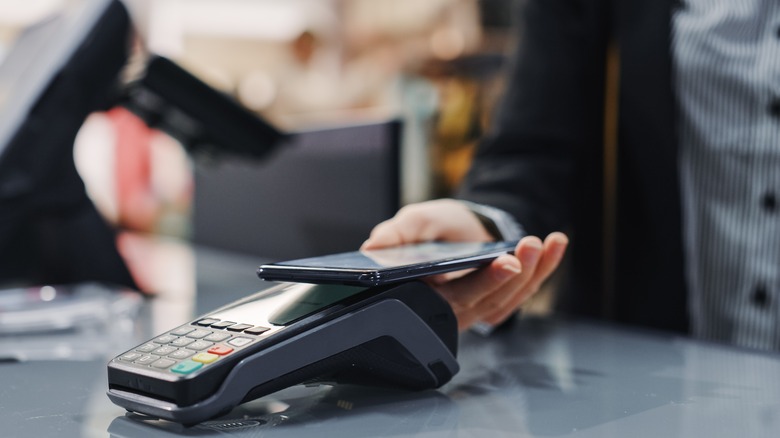We Need To Change The Way We Talk About Lifestyle Creep
An oft-used term in the financial planning world, "lifestyle creep" is not slang for a creepy online influencer, as the name might suggest. Rather, lifestyle creep describes the phenomenon of spending more than you are saving, even after your salary has risen. For some, lifestyle creep might sound like a problem you want to have. Extra cash to spend means fewer costs to worry about, right? Well, without being careful, lifestyle creep can quickly stunt your financial security. Experts warn that once you have become accustomed to living with certain provisions, purchasing excessive comforts at the expense of depositing into a savings account, for example, it can be hard to go back.
But what is considered an excessive comfort when the costs of even essential items are skyrocketing? Economist Mohamed El-Erian recently told CNBC, "It's just a matter of time before we're talking about a cost of living crisis" (via World Economic Forum). In other words, inflation has so ballooned that even basic necessities such as food and gas have become painfully pricey. And according to research from GoBankingRates (via Yahoo! Life), almost 33% of 1,000 Americans surveyed have $100 or less in their savings. Simply put, many Americans just cannot afford to adequately save their earnings, not to mention paying off debt can take years upon years. As such, lifestyle creep is perhaps symptomatic of a larger economic affliction than just having an unhealthy relationship with money.
Debt and lifestyle creep intersect
A 2020 analysis from LendingTree found that, on average, Americans owe about $1,200 on debt payments each month. And depending on your monthly earnings, debt payments could be a significant portion of your paycheck, leaving little left over for bills and other everyday essentials. Experts often recommend securing 20% of each paycheck to put towards savings and paying off debts. But what happens when your debt payments require even more than that portion? Thus, when a raise does come around, money that might otherwise be put in savings quickly goes toward other necessary — but slightly less pressing — expenses that were put on hold to meet immediate financial expenses.
Twitter user @KateRoseBee puts it like this: "Just because you can technically live without something doesn't mean it wasn't essential," she writes. For many Americans, it seems that luxurious spending is less of a harbinger of lifestyle creep than having to constantly prioritize and re-prioritize one's needs and expenses for living, in a nation where such costs continue to rise.
This is not to negate the importance of creating intentional spending habits, however. TikTok creator @christina.mychas confesses in her TikTok video that she was "one of those classic high-earners who was broke." She spent her money on expensive clothes and vacations, rather than working toward paying off her student debt. Wanting to have nice things is not the problem with lifestyle creep, however; the fact that it is so difficult to afford them under crushing debt and living costs is.
What if comfort was a necessity?
Most experts recommend keeping a well-defined budget to build awareness about your spending habits and provide a financial guideline to follow, with some wiggle room for fluctuations month to month — especially when you're saving for a big purchase. But it's important to remember that we are humans, not robots, and spending money on things that bring us comfort or happiness are also worthwhile expenditures.
Consider the notorious avocado toast and iced latte scenarios, which have been used by finger-wagging financiers for years to criticize young people for spending their moola in manners deemed excessive, per Marketplace. Aside from the fact that forgoing that morning iced latte will not save you a significant amount of cash long-term, this example shifts the blame onto individuals, without taking into account the systemic factors that have caused young people to stress about their spending in the first place.
TikTok creator @chelseabychance breaks down the issue of conflating lifestyle creep with careless spending habits in her TikTok video. She says that, while some people do experience exaggerated accounts of lifestyle creep, the truth is much more practical. "What I found that most happens with lifestyle creep is you start living the way you deserve to live," she says. Buying clothes online instead of spending hours in the thrift shop, swapping out an old mattress for a new one, turning on the air conditioning, or ordering takeout after a long shift all seem to be "pretty reasonable" expenses, she says.
